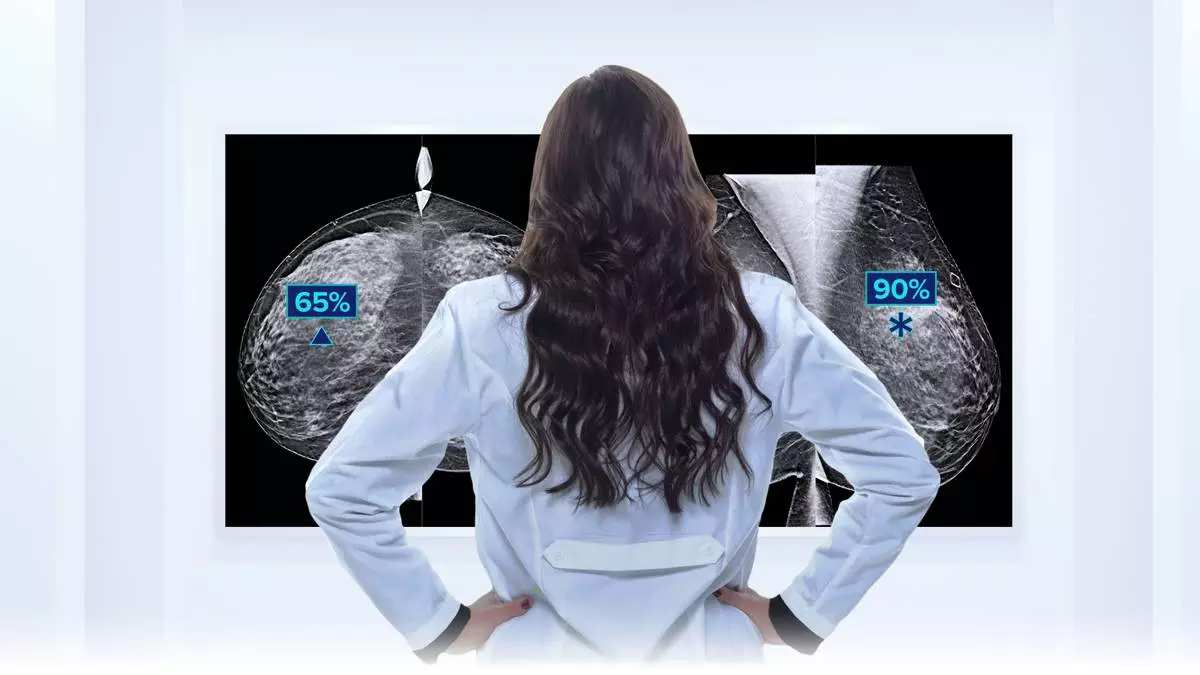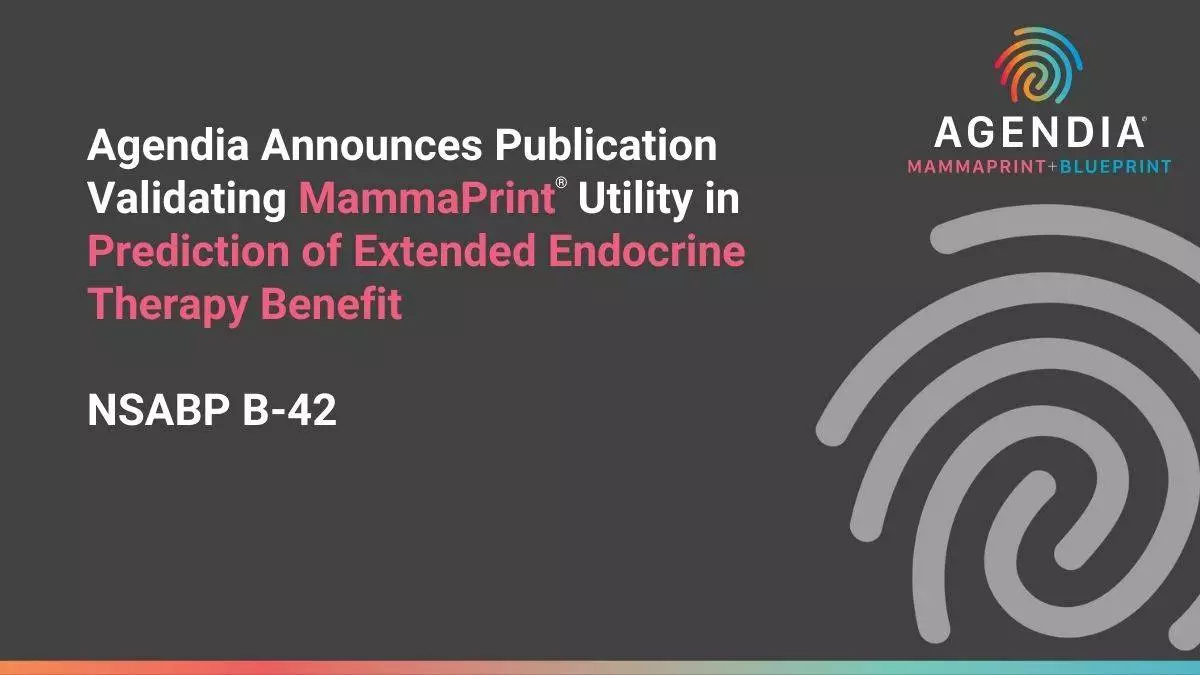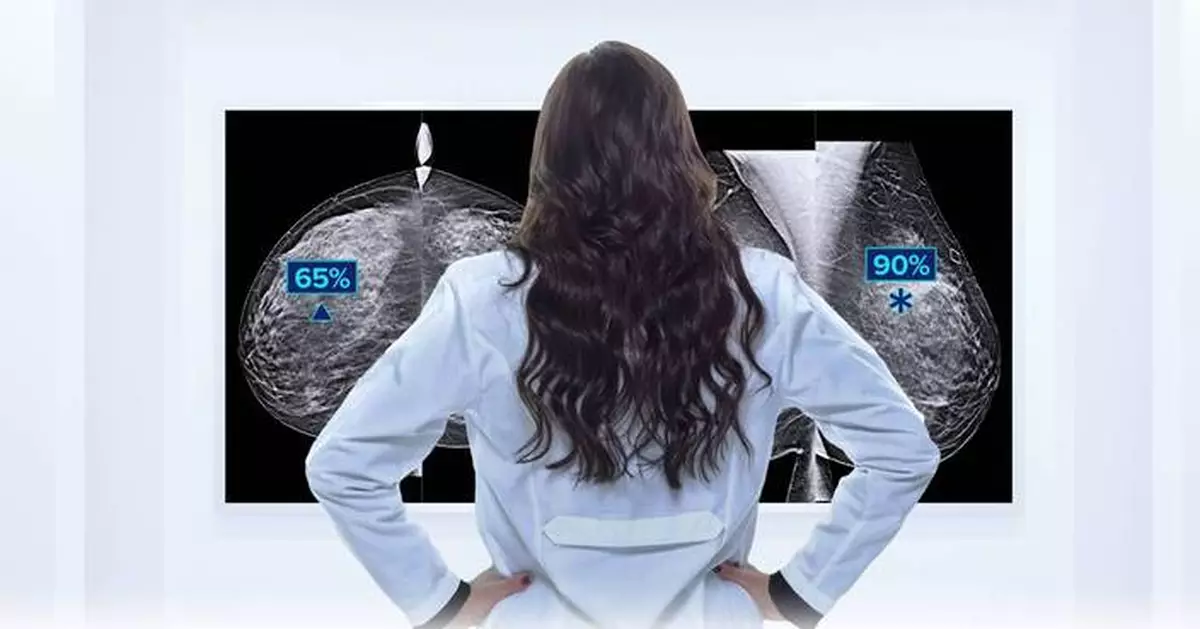MARLBOROUGH, Mass.--(BUSINESS WIRE)--Dec 2, 2024--
Hologic, Inc. (Nasdaq: HOLX) yesterday presented new research demonstrating the performance of its Genius AI ® Detection 2.0 software across diverse patient populations at the 110 th Scientific Assembly and Annual Meeting of the Radiological Society of North America (RSNA).
This press release features multimedia. View the full release here: https://www.businesswire.com/news/home/20241202326112/en/
Artificial intelligence (AI) is increasingly used to aid in the diagnosis of breast cancer, as well as in predicting a patient’s risk level and breast density. The creation of AI algorithms starts with the collection of large, high-quality databases of patient information and images, which are used to develop, train and test the algorithms. It’s important that these databases reflect the diversity of racial and ethnic groups in the population across different regions of the United States, so the developed algorithms minimize any inherent biases that create disparities for any specific patient groups.
“Clinicians across the United States have been leveraging AI solutions in breast cancer screening for many years to drive both clinical and efficiency improvements; however, it’s widely understood that AI algorithms can exhibit racial disparities in a variety of applications,” said Sarah M. Friedewald, MD, Vice Chair for Women’s Imaging, Department of Radiology, Northwestern Feinberg School of Medicine. “This research was a critical step in increasing clinical confidence in this particular AI solution’s ability to deliver results that are not materially impacted by racial bias.”
The research, titled “Performance of a Digital Breast Tomosynthesis AI Detection Algorithm in Common U.S. Racial/Ethnic Groups,” evaluated the performance of Hologic’s Genius AI Detection 2.0 solution in more than 7,500 digital breast tomosynthesis (DBT) cases from women who identified as Asian, Black, Hispanic or white. Researchers found that the measured performance of the algorithm was similar across all evaluated cohorts. 1
“We know that significant racial disparities exist in breast cancer screening and treatment; for example, studies have shown that alarmingly, Black women in the U.S. have a 40% higher death rate 2 from breast cancer compared with white women,” said Erik Anderson, President, Breast and Skeletal Health Solutions, Hologic. “As a leader in women’s health, we are deeply committed to providing clinicians with effective, equitable solutions to advance the detection of breast cancer globally. A key part of that is ensuring that our customers can rely on our technology to perform effectively for all patients regardless of race, ethnicity or background.”
Further demonstrating its leadership in breast imaging AI, Hologic is also introducing its next-generation Genius AI Detection PRO solution for use in the United States. This advanced cancer screening technology expands on Hologic’s Genius AI Detection 2.0 solution by providing even greater accuracy and efficiency, 3 giving radiologists more confidence and helping to reduce false positives. 4 This new AI assistant provides:
To learn more about Hologic’s presence at RSNA 2024, please visit Hologic.com/RSNA.
About Hologic, Inc.
Hologic, Inc. is a global leader in women’s health dedicated to developing innovative medical technologies that effectively detect, diagnosis and treat health conditions and raise the standard of care around the world. To learn more, visit www.hologic.com and connect with us on LinkedIn, Facebook, X (Twitter),Instagram and YouTube.
Forward-Looking Statements
This news release may contain forward-looking information that involves risks and uncertainties, including statements about the use of Hologic products. There can be no assurance these products will achieve the benefits described herein or that such benefits will be replicated in any particular manner with respect to an individual patient, as the actual effect of the use of the products can only be determined on a case-by-case basis. In addition, there can be no assurance that these products will be commercially successful or achieve any expected level of sales. Hologic expressly disclaims any obligation or undertaking to release publicly any updates or revisions to any such statements presented herein to reflect any change in expectations or any change in events, conditions or circumstances on which any such data or statements are based.
Hologic, The Science of Sure and Genius AI are trademarks and/or registered trademarks of Hologic, Inc., and/or its subsidiaries in the United States and/or other countries. Dr. Sarah M. Friedewald is a paid Hologic consultant. Views and opinions expressed herein by third parties are theirs alone and do not necessarily reflect those of Hologic.
References
1 S. M. Friedewald, et. al. (2024) Performance of a digital breast tomosynthesis AI detection algorithm in common US racial/ethnic groups.
2 Giaquinto, A.N., Sung, H., Miller, K.D., Kramer, J.L., Newman, L.A., Minihan, A., Jemal, A. and Siegel, R.L. (2022), Breast Cancer Statistics, 2022. CA A Cancer J Clin, 72: 524-541. https://doi.org/10.3322/caac.21754.
3 S. Pacilè, et al. (2024). Evaluation of a multi-instant multi-modal AI system supporting interpretive and noninterpretive functions. Accepted for publication in the Journal of Breast Imaging, https://doi.org/10.1093/jbi/wbae062.
4 K240301 510(k) summary distributed by Hologic, Inc.
SOURCE: Hologic, Inc.


GAI 2.0 (Graphic: Business Wire)
IRVINE, Calif. & AMSTERDAM--(BUSINESS WIRE)--Dec 2, 2024--
Agendia ®, Inc. today announced the publication of a pivotal secondary analysis from the IDEAL randomized Phase 3 clinical trial in JAMA Network Open. The study highlights the ability of the MammaPrint (MP) genomic assay to predict benefit of extended endocrine therapy (EET) in post-menopausal patients with early-stage, hormone receptor positive (HR+) breast cancer.
This press release features multimedia. View the full release here: https://www.businesswire.com/news/home/20241202983483/en/
The published study, titled Selection of Patients with Early-Stage Breast Cancer for Extended Endocrine Therapy: A Second Analysis of the IDEAL Randomized Clinical Trial, corroborates prior findings published from the NSABP B-42 trial, demonstrating that MP can identify patients who benefit most from EET and those with minimal benefit who can avoid associated side effects, thus optimizing adjuvant treatment decisions beyond traditional clinical risk factors.
This secondary analysis focused on MammaPrint’s predictive capacity of EET in preventing late recurrences among a translational cohort of 515 IDEAL patients. The cohort consisted of post-menopausal, hormone receptor-positive early breast cancer patients who were randomized to receiving 2.5- or 5-years of extended letrozole therapy after completing an initial 5 years of endocrine therapy. The original study did not show any benefit of 5 years over 2.5 years of endocrine therapy, however, through analysis using genomic profiling with MammaPrint, this study was able to identify a subset of patients who will benefit from EET. Key findings from the study include:
“By demonstrating MammaPrint’s ability to predict the benefit from extended endocrine therapy based on genomic risk, particularly the recurrence-free interval for Low-Risk patients, physicians are now better equipped to identify which patients will benefit from this treatment,” said Laura van ‘t Veer, PhD, Professor of Laboratory Medicine, Co-Leader of the Breast Oncology Program and Director of Applied Genomics at the Helen Diller Family Comprehensive Cancer Center, University of California, Chief Research Officer and Co-Founder of Agendia. “These findings provide clinicians with a powerful tool to optimize endocrine treatment duration, potentially sparing MP High-Risk patients from unnecessary extended therapy while ensuring MP Low-Risk patients receive the full protective benefits they need.”
“These data build upon the evidence gathered from the NSABP-42 study, providing further validation of MammaPrint’s genomic profiling to help refine treatment strategies and identify patients who are more likely to benefit from extended endocrine therapy,” said William Audeh, MD, MS, Chief Medical Officer of Agendia. “We know that some hormone-positive breast cancer may have a risk for late recurrences, beyond five years, and these data show that MammaPrint can predict which of those recurrences are preventable by EET. Because MammaPrint looks at the biology of the tumor early in the treatment cycle, it can distinguish Low-Risk patients who will derive substantial benefit from extended endocrine therapy from High-Risk patients who will not. This approach not only optimizes therapeutic efficacy, but also minimizes unnecessary treatment for those unlikely to benefit, thereby enhancing overall patient care.”
The data from both IDEAL and NSABP-B42 validate MP’s predictive ability to determine which patients will benefit from EET and which can avoid it, potentially improving long-term survival outcomes and quality of life. These findings expand MP’s clinical utility beyond guiding neoadjuvant and adjuvant chemotherapy decisions and towards optimizing the duration of adjuvant endocrine treatment.
About Agendia
Agendia is a leading provider of innovative solutions in the field of precision oncology. With a focus on early-stage breast cancer, Agendia offers reliable biological insights that inform personalized treatment decisions for patients and their care teams. Their advanced genomic assays, MammaPrint ® + BluePrint ®, enable clinicians to quickly identify the most effective treatment plan, minimizing the risk of both under- and over-treatment.
Agendia was founded in 2003 and is headquartered in Amsterdam with its state-of-the-art laboratory facility located in Irvine, CA. Led by world-renowned scientists and oncologists, Agendia is committed to advancing genomic insights through ongoing research. This includes the notable FLEX Study – the world’s largest whole transcriptome Real-World Evidence-based Breast Cancer database which aims to revolutionize precision in breast cancer management. With cutting-edge technology, research and innovation, Agendia strives to shape the future of precision oncology and make a significant impact in the fight against breast cancer.
About MammaPrint
MammaPrint ® is a gene expression profiling test that reveals the distinct underlying biology of an early-stage tumor to determine its risk of spreading. As the only FDA-cleared gene expression profiling test to assess a woman’s risk of distant metastasis, MammaPrint ® provides critical answers that help inform the future of a woman’s treatment plan at the point of diagnosis, including the timing and benefit to chemotherapy and endocrine therapy. MammaPrint ® listens to the signals from 70 key genes in a woman’s tumor to stratify her risk within four distinct categories – ranging from UltraLow, Low, High-1, and High-2 – to fuel a right-sized care plan tailored to her biology and her life’s plans.
About BluePrint
BluePrint ® is a gene expression profiling test that reveals the driving forces behind a tumor’s growth at the earliest stage possible in a woman’s breast cancer care journey to help optimize and personalize treatment planning. As the only molecular subtyping test available in the U.S., BluePrint ® goes where pathology cannot, offers critical insights that providers may otherwise have not known to act on, and gives women the best chance to return to a life not defined by cancer. BluePrint ® measures the activity of 80 key genes that are involved in a tumor's growth to classify a tumor as Luminal-type, HER2-type, or Basal-type, each of which warrant distinct treatment pathways. By revealing the distinct underlying biology of a woman's tumor, BluePrint ® can catch often misclassified, yet highly aggressive, Basal tumors, so women can be prescribed the most appropriate treatment from the start.


(Graphic: Business Wire)












